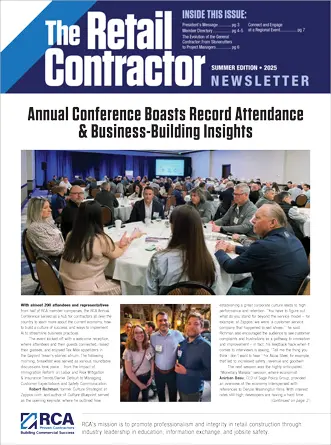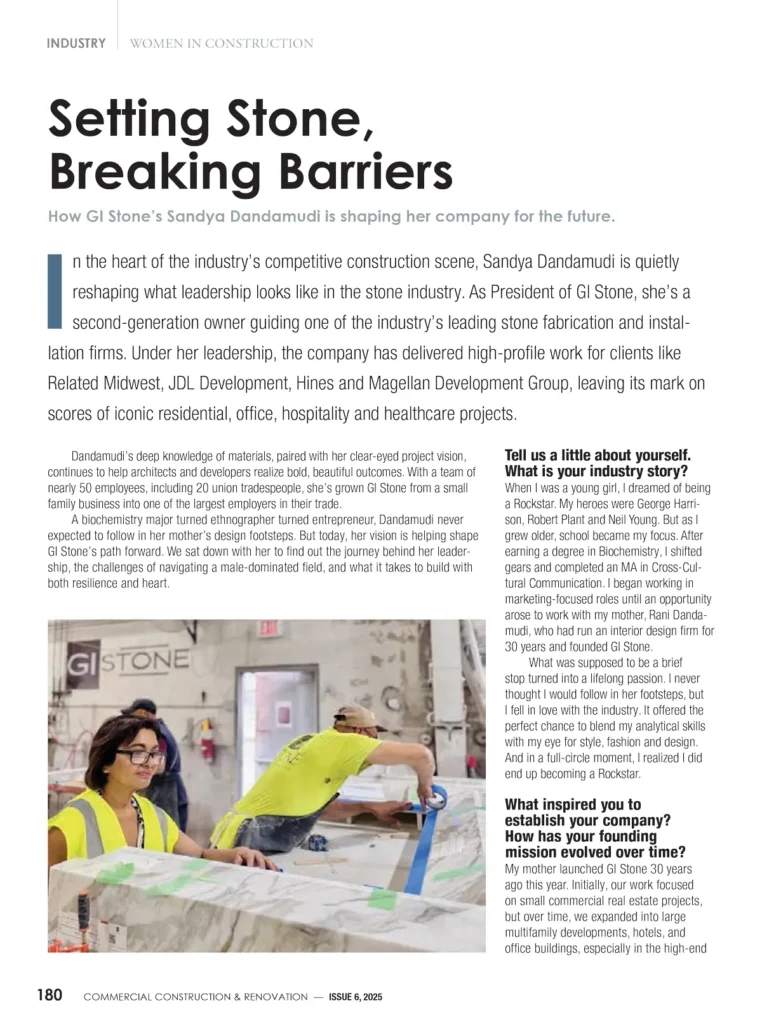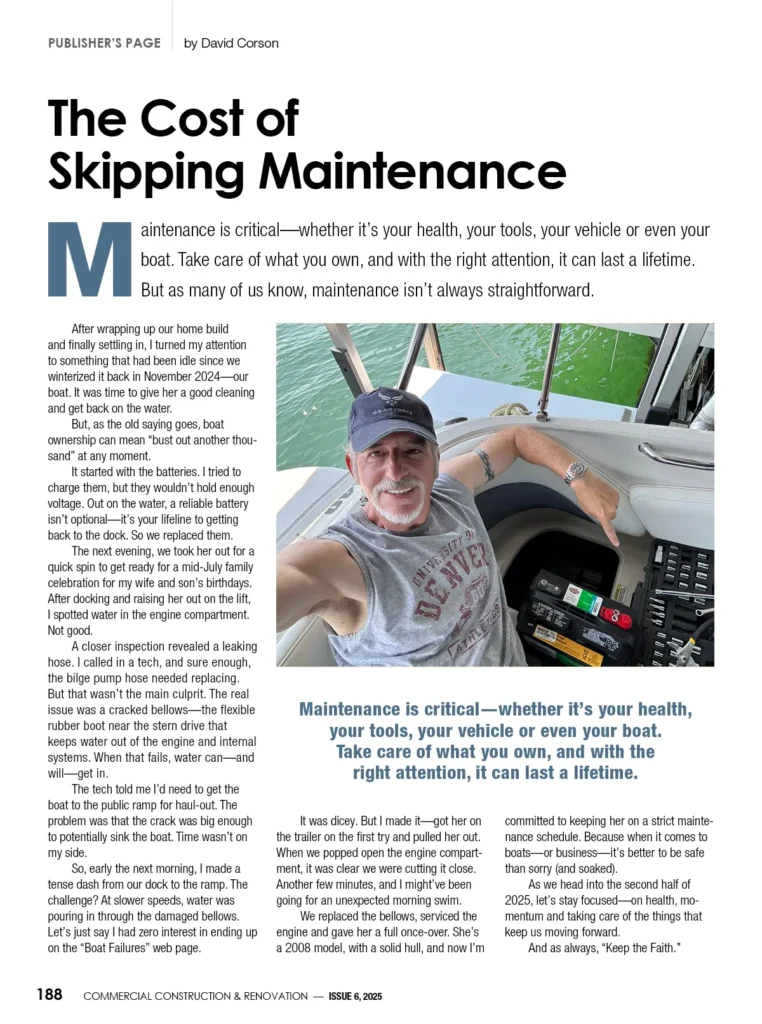By: Farhan Ahmad, Founder & CEO of Bento for Business
Talking about fraud in the workplace can be a sensitive subject, and it doesn’t matter if you are a family-owned remodeling company or a multi-state mega developer. Even suggesting that there are team members who are taking money from the company can cause walls to go up, damage trust, and fuel conflict.
But there are two compelling reasons to talk about it anyway. First, and perhaps most importantly, there are a lot of reasons for employees to commit fraudulent acts that are understandable on a very human level and those reasons can be mitigated (more on that later). And second, the median loss for all fraud cases as reported by the Association of Certified Fraud Examiners in 2016 was $150,000. If that sounds bad, brace yourself because the median loss in the construction industry was $259,000.
A construction company must protect its margins, which are constantly under attack by myriad uncontrollable circumstances: weather, vendor delays, legal hurdles, licensing, etc. Fraud shouldn’t be one of those uncontrollables. So consider the following analyses of the causes, repercussions, and solutions of fraud without precondition, because at the end of the day, this is about the health of your business.
What is fraud?
Merriam-Webster Dictionary defines fraud this way: “intentional perversion of truth in order to induce another to part with something of value or to surrender a legal right.” On its face, this definition is a reasonable place to begin to understand what the action of fraud really is. It is when a foreman duplicates receipts, or when an accountant siphons money from a company account, or when petty cash is spent on something non-work related.
In varying degrees of severity, these are all examples of fraud. But a business owner also needs to understand the “why” behind these actions. In broad brush strokes, we can fairly state that there are two types of fraud that occur: intentional and opportunistic.
Intentional would be premeditated, planned, and knowingly perpetrated acts to embezzle money from the company. This the what gets companies in the most trouble because the scope of the theft is larger. Opportunistic fraud, by contrast, is simply when a chink in company security and money management policy provides an opening for an employee to skim something off the top. These incidences are typically more innocent and easier to prevent.
In any case, no employee ever embezzles money without the presence of three conditions, which are called the Fraud Triangle.
What is the Fraud Triangle?
Nothing happens in a vacuum, at random, or “just because”. In this case, we can say that fraud happens within a triangle of opportunity, incentive, and attitude.
Opportunity: if it were not possible to steal money from the company, no one ever would. So by definition, fraud occurs when an opening presents itself. These openings can cover a wide spectrum. Most common in the construction industry are falsified expense reports, petty cash mishandling, and abuse of company cards. But more complex schemes can be hatched and business owners should thoroughly research and protect against those.
Incentive: everyone would like more money, but that usually is not enough to cause someone to steal. Instead, perpetrators of fraud typically act on other motivators. It can be dire financial stress (medical bills, gambling debts, etc), anger at the company or employer, or just simple greed. It is important for business owners to understand that these are human conditions, which is not to minimize the crime, but to better understand that actor.
Attitude: this is the part where opportunity and incentive meet the crucial third ingredient, which is some kind of rationalization. An employee may justify their theft because they think no one will notice, because they think they deserve the money, or because they intend to pay it back later. These rationalizations range from inexcusable and sinister, to sadly innocent and relatable. In any scenario, a business owner is better off preventing the event from occurring.
What is fraud costing me?
In the construction industry, expense reimbursements, skimming, and cash on hand fraud collectively account for 42% of losses from fraud. Other driving factors are corruption, payroll and billing.
For the average construction business, these losses account for 5% of annual revenues, and that number has been growing every year since 2014. Bankruptcies are also the result of so-called “friendly fraud”, or embezzlement perpetrated by people inside the company, 33% of the time. In other words, it can gnaw away at the health of your business or kill it altogether.
How can I protect my company?
There is good news and bad news here. Let’s start with the bad news: fraud is an intractable problem and there is no silver bullet solution to protect your company from the many ways people with privileged access can abuse that trust.
But there is good news. The good news is that most companies, and particularly those in the construction industry, have utilized few of the tools available to them to enhance their security. Here is a quick overview of some of the resources that construction companies should explore:
Technology: in recent years technology has developed at a rapid pace, which has allowed for the development of sophisticated tools that empower companies to track expenses, identify breaches, immediately respond to problems, and better control access to sensitive information and accounts.
Policies: a simple review of company policies will quickly turn up opportunities to reduce risk. Focus on policies that remove one of the pieces of the Fraud Triangle. This can be done by reviewing vacation policies, how expense reimbursement is managed, and better understanding employees’ personal lives.
Response: once you have done everything you can to protect yourself from fraud, live with peace of mind by acquiring fraud insurance, which most leading insurers offer. Even small companies with limited budgets can afford this given the astronomic costs associated with the problem. It is far less expensive to be insured.
Fraud should not be a taboo subject. Its place in the shadows only makes it more potent. Business owners need to tackle this issue head on and incorporate their teams in the solution. Talking about and working to prevent this problem does not need to be a witch hunt or cause dissention within your company. There are tools and best practices available that make it easier than ever to operate your business with peace of mind.
More info at https://bentoforbusiness.com.
































